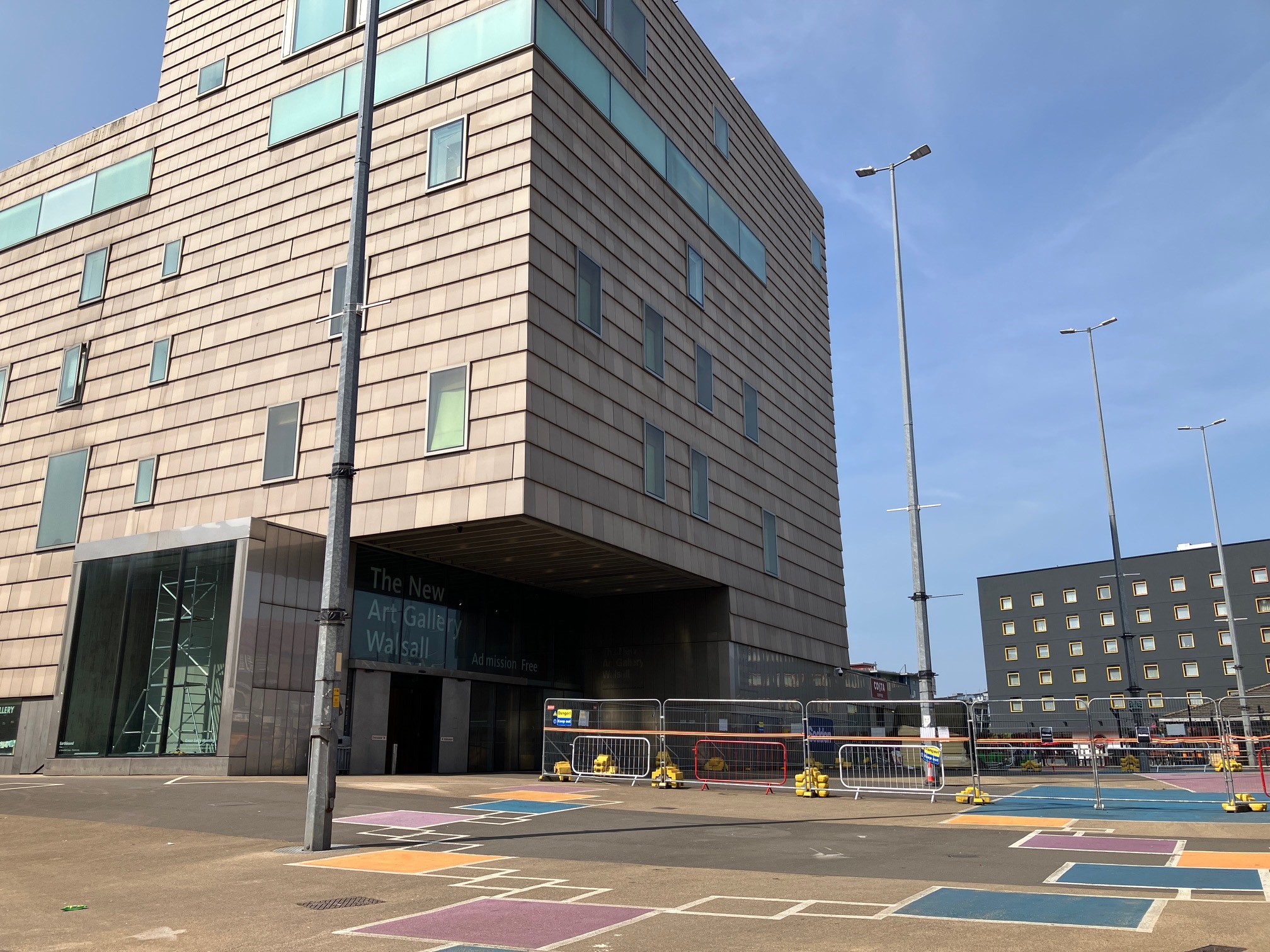Museums and galleries
The New Art Gallery Walsall goes green with major energy upgrade
Published on
The New Art Gallery Walsall is getting a green makeover as part of a project to cut carbon emissions and reduce energy use, thanks to funding from the Department for Energy Security & Net Zero and the UK Shared Prosperity Fund.

Work is currently underway to replace the Gallery’s old heating system with modern, eco-friendly air source heat pumps. Solar panels will also be installed on the building to help generate clean electricity, along with new double glazing, efficient hot water taps, and other upgrades to make the building use less energy overall.
These improvements will make the 25-year-old Gallery much more energy-efficient, helping to save money on bills and cut pollution. Experts estimate the upgrades will save around 89 tonnes of carbon dioxide (equivalent) each year, around the same as taking 55 petrol cars off the road for a year, and more than 1,717 tonnes over the life of the new equipment, comparable to taking 1,070 petrol cars off the road for a year.
This work supports Walsall Council’s goal of reaching net zero carbon emissions by 2041, a plan launched in June 2025 that aims to make the borough a healthier, greener, and more prosperous place to live, work, and do business.
“ These improvements will enhance energy efficiency in the Gallery, helping reduce both energy bills and carbon emissions as we work towards our 2041 net zero target. With 60% of residents concerned about climate change and 90% wanting organisations to work together on solutions, we’re proud that our buildings continue to lead the way in local climate action.”
“This work is yet another step in our move towards a Net Zero Walsall. In recent times, we have installed solar panels and energy efficiency upgrades, showcasing the economic benefits transitioning towards Net Zero can bring. “
Walsall Council has been awarded £602,532 to decarbonise both the Gallery as well as Bloxwich Launchpad. Bloxwich Launchpad is a project which will offer facilities and support to help entrepreneurs in Walsall, while also offering digital support and training.
The funding comes via 2 grant sources:
- £558,010 from through Phase 3c of the Public Sector Decarbonisation Scheme, which is run by the Department of Energy Security and Net Zero and delivered by Salix Finance.
- £44,522 from the UK Shared Prosperity fund, part of the UK government funding awarded to the West Midlands administered by the West Midland Combined Authority.
The Gallery is open as usual during these works, which are due to be completed by the end of September 2025.
For further information on how The New Art Gallery Walsall is becoming more sustainable and embedding environmental responsibility throughout its programme, visit: Sustainability | The New Art Gallery Walsall
The Net Zero 2041 Strategy can be viewed at https://go.walsall.gov.uk/people-and-communities/community-standards-and-strategies/walsall-net-zero-2041-strategy
About the Public Sector Decarbonisation Scheme
The Public Sector Decarbonisation Scheme is delivered by Salix Finance on behalf of the Department for Energy Security and Net Zero.
222 projects have been awarded a share of £530 million from Phase 3c of the Public Sector Decarbonisation Scheme so far: see the full list of Public Sector Decarbonisation Scheme projects. Additional funding will be allocated through Phase 3c in the coming weeks as final award offers are made.
About Salix: Salix’s role is to support the UK government in driving the transition to a low carbon future and meet challenging net zero targets. We deliver and administer grant and loan funding on behalf of the Department for Energy Security and Net Zero, the Department for Education and the Scottish and Welsh governments. This is delivered across the public sector as well as housing.
The schemes we deliver provide funding for energy efficiency and heat decarbonisation projects for public sector buildings as well as the housing sector. Our schemes are dedicated to reducing carbon emissions and supporting the government’s ambitious net zero targets. These programmes include the Public Sector Decarbonisation Scheme, the Social Housing Decarbonisation Fund, Home Upgrade Grant, the Low Carbon Skills Fund and Scotland’s Public Sector Heat Decarbonisation Fund. We also play an important role in increasing awareness of energy efficiency and heat decarbonisation across the public sector throughout the UK. Our teams work closely with the public sector organisations throughout their decarbonisation journey, from the moment a grant is allocated to the moment the scheme is fully operational.
About UKSPF funding
The government’s £2.6 billion UK Shared Prosperity Fund (UKSPF) is a 3-year fund running from 2022/23 that replaces the old EU structural funds is allocated to local places across England, Scotland, Wales and Northern Ireland to invest in three local priorities, communities and place, support for local businesses and people and skills.
The UKSPF allocation to the West Midlands, 7 metropolitan councils of just over £88 million, is administered by the West Midlands Combined Authority to build pride in place and increase life chances across the UK, this will be achieved through three UKSPF priorities:
Communities and Place
- Strengthening our social fabric
- Fostering a sense of local pride and belonging
Building resilient and safe neighbourhoods
Local Business Support
- Creating jobs and boosting community cohesion by supporting local businesses
- Promoting networking and collaboration and stimulating innovation and growth
- Targeted support to help businesses growth – for example: innovation, productivity, energy efficiency, low carbon and exporting
People and Skills
- Boosting core skills and supporting adults to progress in work
- Supporting disadvantaged people to access the skills they need
- Funding local skills needs and supplementing local adult skills provision
- Reducing level of economic inactivity and supporting those furthest from the labour market